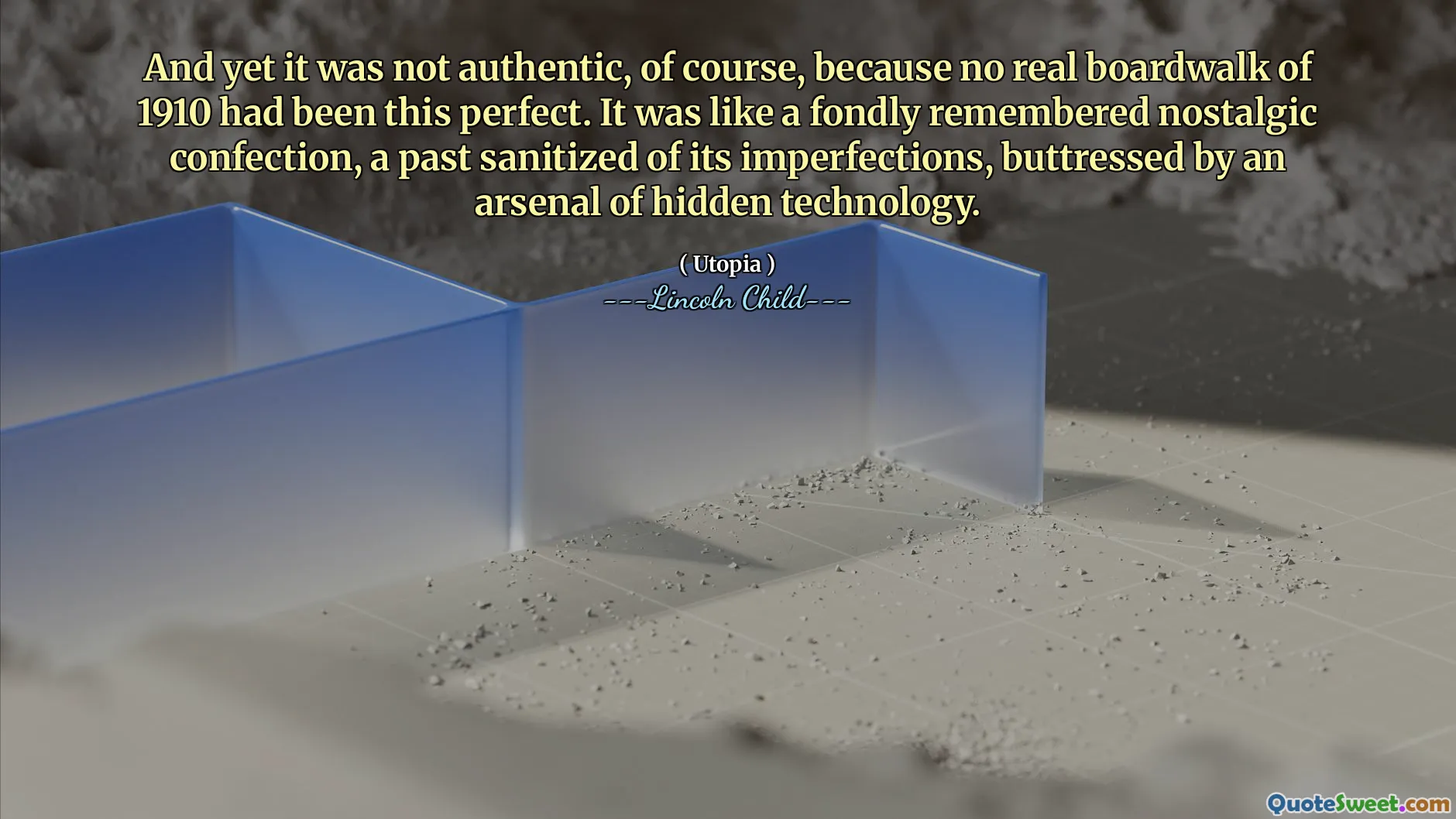
And yet it was not authentic, of course, because no real boardwalk of 1910 had been this perfect. It was like a fondly remembered nostalgic confection, a past sanitized of its imperfections, buttressed by an arsenal of hidden technology.
This quote poignantly captures the complex relationship we have with nostalgia and the way it colors our perception of the past. It highlights an uncomfortable truth about how idealized memories or reconstructions often strip away the authenticity of experience to create a sanitized, perfected version of history. The mention of a "fondly remembered nostalgic confection" evokes the image of something artificially sweetened and carefully crafted—something that appeals to emotion but lacks the rough edges and imperfections that make lived experiences genuine and relatable.
Furthermore, the reference to the "arsenal of hidden technology" beneath this flawless façade introduces an almost dystopian insight into how appearances and reality can diverge dramatically. It reminds us that beneath the surface of perceived perfection, there may lie manipulation and constructed artificiality. Interestingly, this reflects broader themes often found in utopian or dystopian literature, where perfect environments mask underlying control or deception.
Ultimately, this quote encourages readers to question the authenticity of our cherished recollections and the environments we create or sustain, warning against the dangers of valuing sanitized, idealized versions of the past that sacrifice truth for comfort. It also touches on human nature’s desire to cling to an idealized past as a haven, deceiving ourselves to escape imperfections and complexities inherent to real history. In that way, the quote draws attention to the tension between reality and idealism, memory and truth, authenticity and artifice.






